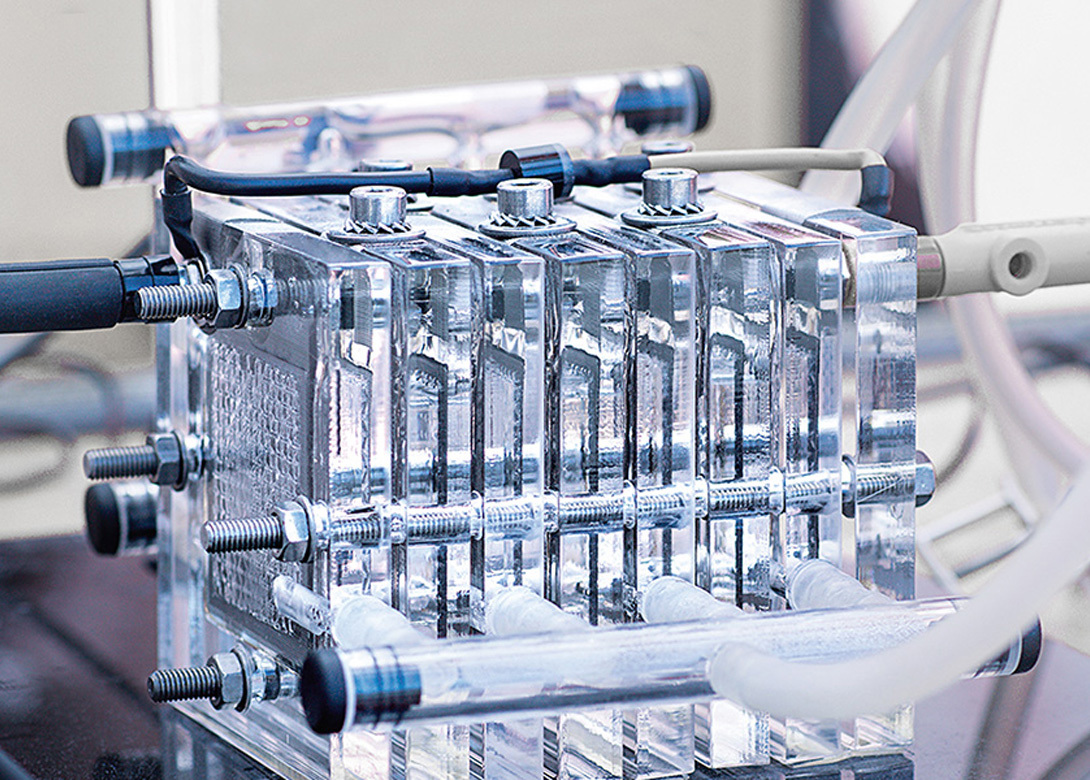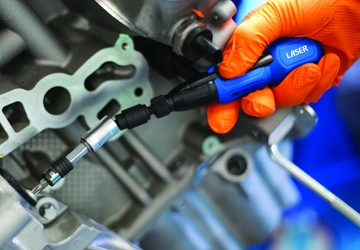

WEVO-CHEMIE GmbH has developed silicones and adhesives specially designed for fuel cell applications in electric vehicles, and their low gas permeability has been confirmed by ZBT, the hydrogen and fuel cell centre in Duisburg.
Hydrogen-based fuel cells achieve high performance and are energy-efficient, hence they have considerable potential for powering electric vehicles. Also, no harmful emissions are produced because only water and electrical energy are released when hydrogen reacts with oxygen. Since hydrogen is the smallest of all molecules, the adhesives and sealants used for fuel cells must ensure a very tight seal in order to prevent diffusion.
Fuel cells consist of several functional layers that can differ both in terms of the materials and components used. One of the most common types, which is currently being widely researched because of its suitability for the automotive sector, is the so-called PEM (Proton Exchange Membrane) fuel cell.
Since hydrogen is flammable and can form explosive mixtures in an oxygen-containing atmosphere, reliable sealing of the individual cells is essential. The sealing materials must not only be highly impermeable to gas; they must also be resistant to challenging conditions, such as continuous high temperatures of up to 120°C or low pH.
To combat these challenges, Wevo has designed materials with a low gas permeability which has been confirmed by ZBT, the Duisburg hydrogen and fuel cell centre, a leading research institute in Europe in this field. One of the silicone-based products exhibited a very low hydrogen permeation coefficient of about 130 E-8 cm²/s after a measurement time of 16 hours (a figure between 500 and 1000 E-8 cm²/s is typical for addition-curing silicones).
Wevo’s polyurethane sealants, which have similar thermo-mechanical properties to silicones, have an even lower hydrogen permeability depending on the Shore hardness setting. Their permeation coefficients vary between about 30 and 70 E-8 cm²/s, also after a 16 hour measurement period. What’s more, these products adhere significantly better than silicones to the different substrates of bipolar plates. This prevents the seal from detaching either in the course of the manufacturing process or during stacking. The products also offer very fast curing.

Becca is the latest member to join our team and is eager to get stuck into the world of fasteners. She brings an enthusiastic and fresh outlook on what we do editorially and will be leading our social media activity – including sourcing material, editing articles and posting online.





